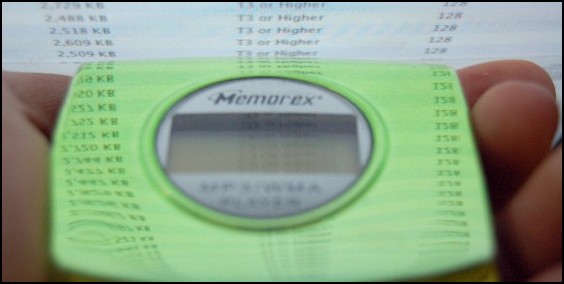The University of Louisville has a strict copyright violation policy, and resident students who violate it may have their Internet access terminated for the entire year and can even jeopardize their academic careers.
The Recording Industry Association of America sued 261 peer-to-peer file sharing users in 2003 for illegally downloading copyrighted music.
The message to students is, instead of running the risk, just cough up the cash and buy the single.
“Do not illegally download anymore, for one reason: if bands are good enough you probably should support them,” said senior sociology major Ben Belknap. Belknap said that downloading was no longer an option for him because the music he usually wants is novelty, upcoming or vintage, so it’s difficult to find, even on the Internet.
“Most new artists have a MySpace account. You should e-mail them and they’ll send you their album for … like $5, $10, $15,” he said.
There are plenty of sites where music lovers can download copyrighted music legally, purchasing it for nominal prices. Music Match, iTunes and Yahoo Music offer tracks that cost between 79 and 99 cents each.
“I don’t [download] because I don’t know how. I’d hate to screw up and then get caught,” said junior nursing student Ryne Bruner.
Senior finance major Eric Woodard said he opened a university e-mail and was shocked by the content.
“They had a whole list of everything I did,” he said. The e-mail was from University of Louisville Security and Account Management. U of L has a three-strikes-and-you’re-out policy against copyright crime, which the university has implemented to protect itself from students using its network to download music illegally.
When Security and Account Management is notified of a student’s first offense the student’s connection is disabled and he or she must contact Security and Account Management verifying that all file sharing software and copyrighted material has been removed. After verification the university will turn the student’s Internet access back on.
Punishment for the second offense is similar, except the student loses access to the Internet for the rest of the academic year and has to sign a Commuter Usage Agreement. The student may also be punished in accordance with the university’s Student Code of Conduct.
On his or her third offense, the student loses Internet access for his or her entire academic career at U of L. The student will also suffer severe disciplinary action, including possible dismissal from the school.
Some think the university is doing students a favor by not turning them in to the RIAA or the Motion Picture Association of America.
But other students, like freshman finance major Evan Hagerty, aren’t fazed. “No, I don’t worry. I have my own network,” Hagerty said.






